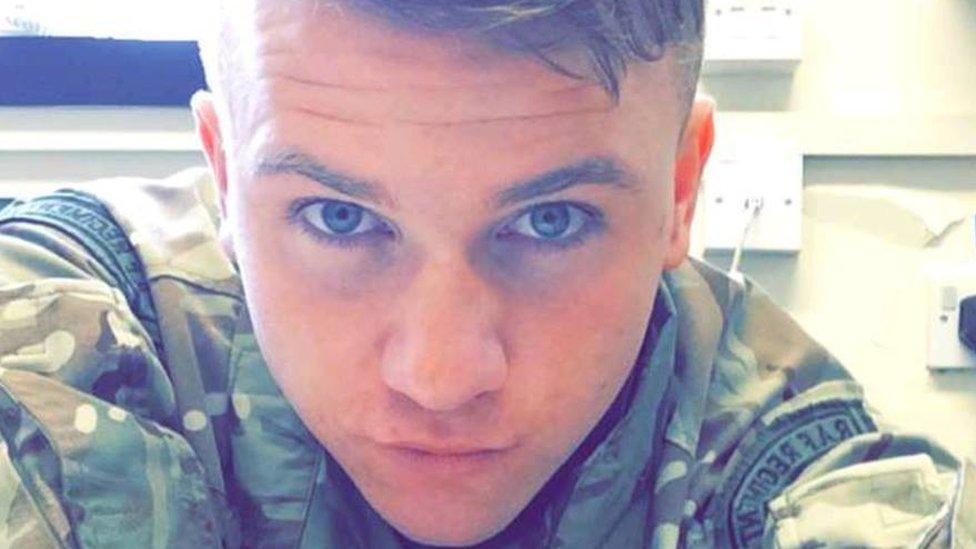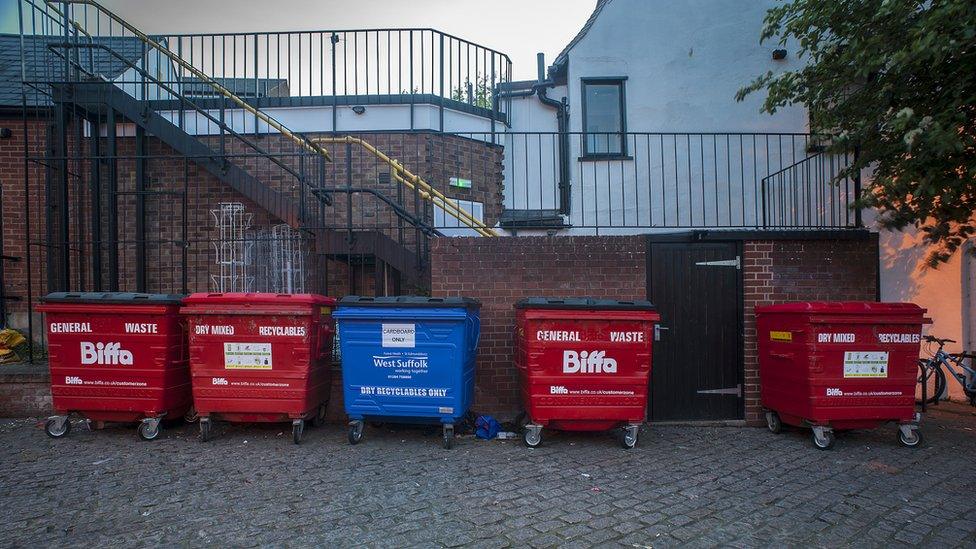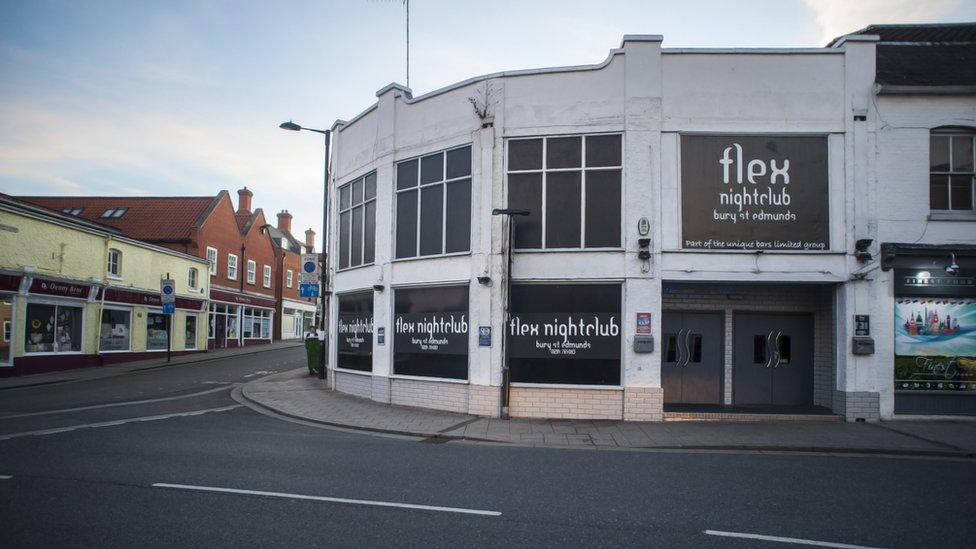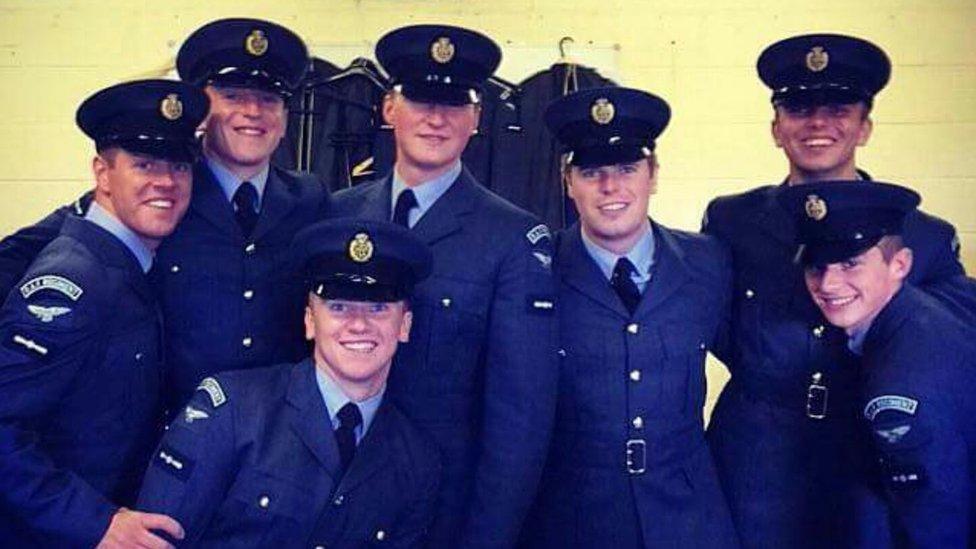RAF airman Corrie Mckeague a 'heavy sleeper when drunk', inquest told
- Published

Corrie Mckeague went missing from Bury St Edmunds - about 10 miles south of his RAF base - on 24 September 2016
An airman who went missing nearly six years ago had previously slept inside a bin and was a heavy sleeper when drunk, an inquest heard.
Corrie Mckeague, from Dunfermline, Fife, was 23 when he vanished in Bury St Edmunds, Suffolk, in September 2016.
Police believe he died after climbing into a waste bin after a night out, but his body has never been found.
Ch Supt Marina Ericson said family, colleagues and friends had talked about how he slept when he had had a drink.
Mr Mckeague was last seen on CCTV going into a bin-loading area in Bury St Edmunds in the early hours of 24 September 2016.
Ch Supt Ericson said when senior officers at RAF Honington, where Mr Mckeague was stationed, reported him missing on 26 September, it was treated as a "high risk" case.
He was serving in the RAF, his disappearance was out of character and at the time, the force was also investigating reports of an attempted kidnap at RAF Marham in Norfolk in July 2016, which "was later discounted", she said.

Mr Mckeague was last seen on CCTV heading towards a bin-loading area behind some shops in Bury St Edmunds town centre
She agreed with Peter Taheri, counsel to the inquest, that she said in a witness statement that "Corrie stated to a colleague he had previously slept in a bin".
Asked for the source of this information, she said: "Two witnesses who were colleagues of Corrie Mckeague."
She also said in her witness statement that Mr Mckeague "was described as being a heavy sleeper when drunk".
"Colleagues, friends, I believe some of the family statements made reference to how he slept when he had had a drink," she told the court.
She added that the movement of the airman's mobile phone appeared to match the movement of a bin lorry that collected a bin from the service area where he was last seen.
A hypothesis that he had climbed out of the area was "thoroughly investigated" and found to be unlikely, she said.

Mr Mckeague had been asked to leave Flex nightclub a couple of hours before the last sighting of him on CCTV
Ch Supt Ericson said Mr Mckeague was not seen by witnesses or on CCTV after entering the service area and that he was "believed to be significantly under the influence of alcohol".
"From CCTV footage he can be seen to be unsteady on his feet, which would have hindered any attempt to climb the buildings surrounding this area," she said.
She added that 1,843 witnesses were spoken to during the investigation, with two people treated temporarily as suspects before both were told they would face no further action.
Andrew Graves, from waste vehicle manufacturing firm Dennis Eagle, said the chances of someone surviving inside the back of a bin lorry were "slim".
"If anything suffocation is likely to be the most likely cause of death if the person isn't immediately crushed," he said.
Mr Graves said 30 tonnes of force is exerted during each compaction cycle in the back of a bin lorry, each lasting 18 to 20 seconds.
He said there was 10.8 tonnes of waste in the bin lorry in question, which would have come out "like an Oxo cube".
"I give a 5% chance of survival," Mr Graves said.
The inquest, due to last four weeks, continues.

Find BBC News: East of England on Facebook, external, Instagram, external and Twitter, external. If you have a story suggestion email eastofenglandnews@bbc.co.uk
- Published9 March 2022

- Published8 March 2022

- Published7 March 2022
